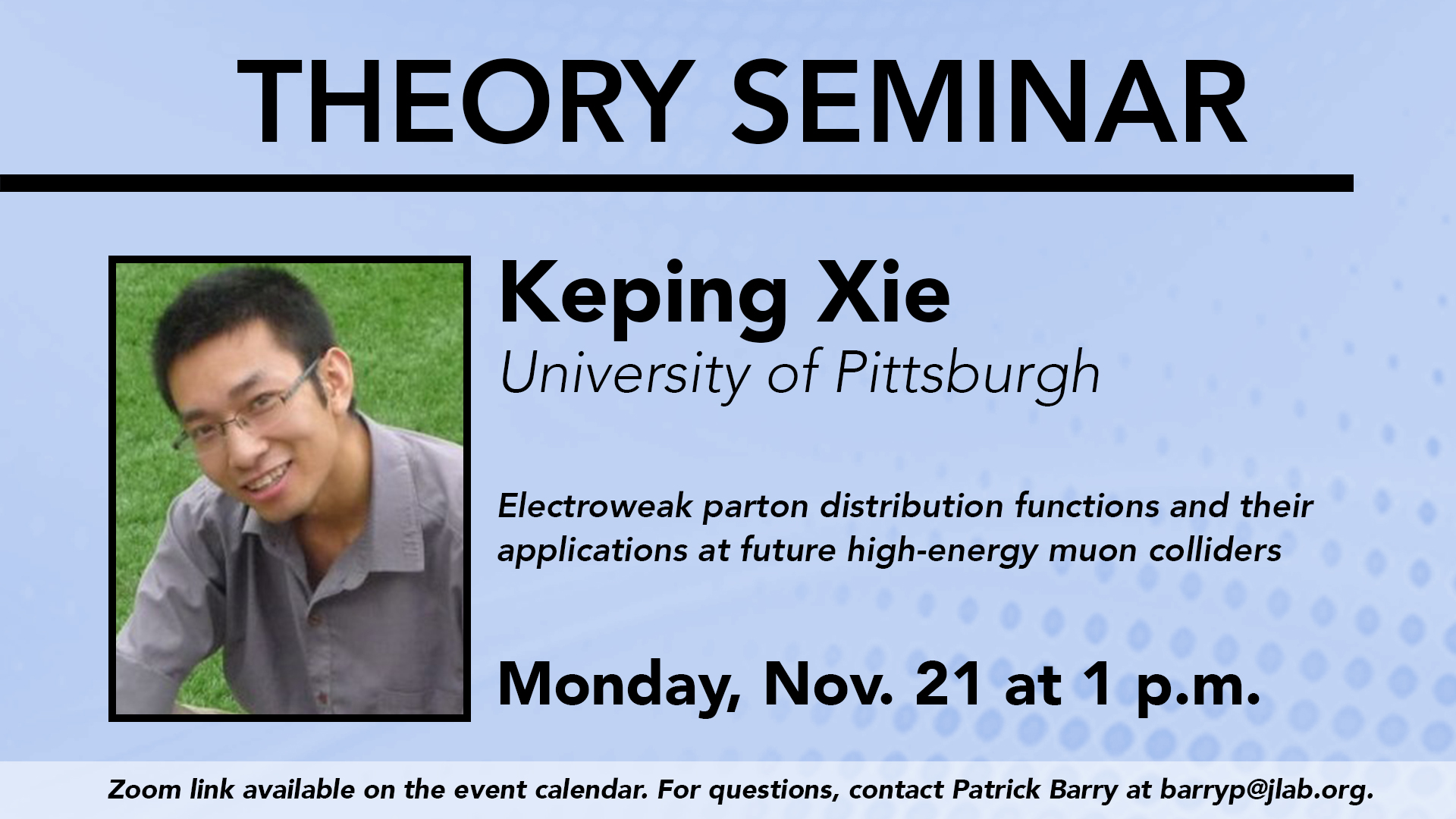Theory Seminar: Keping Xie
- Theory Seminar: Keping Xiehttps://jlab-org.zoomgov.com/j/1611179843?pwd=M09CNTFpbFVZSW1IQlhIMGp3RUVHUT09Remote2022-11-21EST13:00:00 ~ 2022-11-21EST14:00:0017983
Attendees are kindly asked to provide their full names on Zoom when entering the event. We also ask any members of the audience who would like to pose questions to please introduce themselves prior to their question.
Speaker: Keping Xie (University of Pittsburgh)
Title: Electroweak parton distribution functions and their applications at future high-energy muon colliders
Abstract: The recent breakthrough in the muon beam cooling technology make a multi-TeV muon collider feasible in the future. Compared with a hadron or electron collider, a muon collider embraces advantages of both a high effective energy reach and a clean environment. Our recent studies suggest that the physics at a high-energy muon collider can be treated in a factorization picture. At an energy well above the electroweak scale, the collinear splitting phenomena dominate due to the large logarithm enhancement both in the initial and final state radiations. All the Standard Model particles, including electroweak gauge bosons, essentially become massless, and the electroweak gauge symmetry is gradually restored. With the Dokshitzer-Gribov-Lipatov-Altarelli-Parisi (DGLAP) formalism, we resum large logarithms in the initial state radiations as electroweak parton distribution functions (EWPDFs). The final state radiations should be treated similarly with fragmentation functions. We present several semi-inclusive cross sections as standard candles for the Standard Model processes at a high-energy muon collider. We find that the QCD partons (quarks and gluons) will make a significant contribution to the hadronic events.

